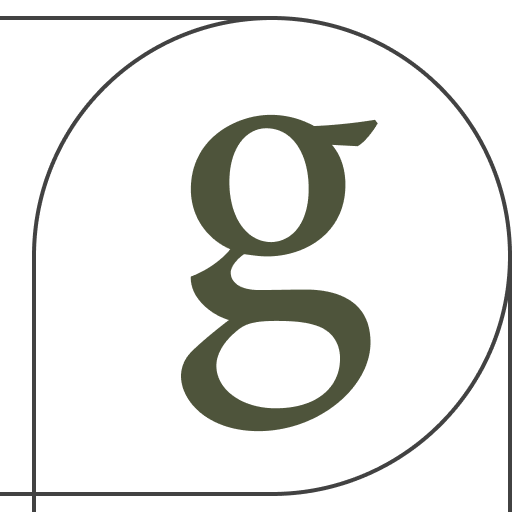The Gym No. 18: Balance forward
Several Wednesdays ago, Zadie Smith took questions after reading from her novel The Fraud in a small auditorium in a big conference center at the University of Texas. Someone asked her why she left her teaching position at NYU.
“I’m 48, and there are books I want to write,” she said. Somehow, before, she could do all three: teach, write, parent—although she’s not sure it was great for the kids. The children are now teenagers, which makes parenting more complicated. “So I quit.”
I shared a feeling-seen look with my friend Kiki, seated next to me. With four kids ranging from elementary-age to teen between us, we know how being present for them takes on a different timbre as they get older. We’re inured to the constant rebalancing of parenting, and to how our choices, no matter how confidently we own them, implicate us.
Being acutely in tune to these imbalances obscures others. Identifying my own wishes is a skill that has dulled without practice. Finding the space for inquiry taps into other imbalances, which have been softly accumulating: A gap between the care desired and the care given. An incongruity between a way of being in the world and a way of spending the days. A subtle distance from ownership of choices.
This year, I’ve learned from a few artist friends about the kind of incongruity that can sneak up on you while you’re doing your life’s work, if you’re lucky enough to know what that is. It’s an imbalance between the heavy matter of what you have to offer and the weightless lack of space to hold that offering.
I yielded early, trading a dance career for college, feeling parts of myself atrophy in real time against the fiberglass classroom desks. I threw my focus into writing—the most readily available activity—and convinced weekly newspaper editors to let me write about artists. When a stage actor sat with me behind a suburban theater complex and told me how she’d chosen the theater over having kids, I nodded gravely as I scribbled, knowing nothing about that particular choice but feeling in my bones that seeing her was important, a consolation-prize job that my background had prepared me, uniquely, to do.
And yet I yielded again, to a 9-to-5 publishing career, for which I spend grad-school student loans on oxford shirts and pencil skirts to make sure I looked the part. As I spent hours checking manuscripts and proofs for textbooks that would not be important, beloved, or even beautiful, I saw things with new clarity: The imbalance was—is—between everything my first career taught me about work and the reality of everything after.
I never quit dancing completely; I only added other things—school, writing, relationships, bills to pay. I thought I needed to dance less to do more, but as I grew wiser, I learned that nothing replaces meaningful work. I learned that I would not stop missing the mind-body-soul demands for my attention and restlessness. I would still yearn for the wild intimacy of doing impossible things together, holding a shared purpose aloft. I would—I did—lose preverbal access to my voice.
Recalibrating work, practice, and being for my present moment is top of my list of balances to care for in 2024. And since writing Top 10s for the Chronicle ingrained the end-of-year listicle as a personal ritual, here’s the rest:
10 more balances to care for in 2024
Less energy spent on making Wall Street stooges money → more energy spent trying to prevent war and suffering. (I mean we have ONE job, and there are endless ways to practice peacemaking.)
Less “AI will take our jobs” → more shaping the next era of reading and knowledge.
Less design that panders to avert risk → more design informed by taste. Development of an intuitive, knowledge-informed, intrinsic point of view as a communication method is a uniquely human ability that we shouldn’t restrict ourselves from paying attention to.
Less listening with ears → more listening holistically. Pauline Oliveros: “Ears are just amplifiers.”
Less designing the app → more design for life outside the app. I’ve spent most of the year learning how: We mapped in-person conversations and found the shape of their nonlinearity, and then we designed an app to support them without intruding.
Less flexing that smartphone claw → more getting ahead of how new interfaces will change the shapes of our bodies and how we move. Do we really want to be pinching in space like disturbed crustaceans? (Shake to undo.)
Less giving bots people names → more calling things what they are. As interfaces become more humanlike, we’ve got to help people differentiate.
Less talking → more reading.
Less fretting → more reading.
Less wishing → more reading.
Alluded to
On teenagers: Zadie Smith, “The Fall of My Teenage Self”
On peacemaking: adrienne maree brown, Emergent Strategy
On listening: Pauline Oliveros documentary
On wisdom: Julia Louis-Dreyfus, her guests, and her mom, Wiser Than Me podcast
And grateful for
Conversations with Ellen Bartel, Heloise Gold, Stephen Mills, Jennifer Hart, Robert Faires, Jen Blake, Maree ReMalia, Magdalena Jarkowiec, Myan Aljets, and, mostly indirectly, Deborah Hay.
And the rest of you, readers, who hold space for this practice—thank you.
Postscript
The platform I'm sending this from, TinyLetter, is finally going away. My next letter will come from a different email address (haven't decided yet), but I'll make sure it's obvious that's it's still me.
Photo
A recent morning dispatch from my parents' house in Evergreen, Colorado. (I'm not there yet but will be soon.)
